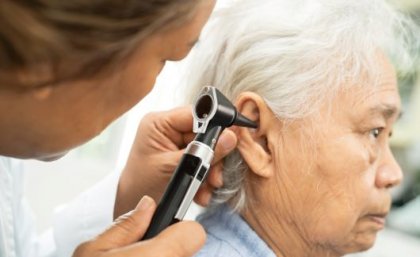
Hearing clinics are not always identifying the language needs of ethnically diverse patients with hearing loss, creating a concerning impact on their quality of care, a University of Queensland-led study has found.
Professor Piers Dawes, Director of UQ’s Centre for Hearing Research led a project which identified 10 culturally responsive strategies that audiologists should use to improve care for patients from diverse ethnic communities.
“People from culturally and linguistically diverse communities in Australia are up to 3 times more likely to have a hearing impairment but are half as likely to use hearing aids or engage with hearing services,” Professor Dawes said.
“This is because the services available are not always culturally sensitive to their needs.
“We wanted to determine what culturally responsive hearing care looks like and devise some practical solutions that audiologists could implement when in consultation with patients.”
Some of the strategies the researchers identified as a priority were asking clients about their need for an interpreter, asking if they would prefer to include a family member in appointments, taking time to explain options, benefits and limitations, and asking clients about male or female clinician preferences.
Senior researcher Dr Mansoureh Nickbakht from UQ’s School of Health and Rehabilitation Sciences said the project collected responses from both hearing care providers and patients with hearing-loss and their families.
“We worked with over 10 community organisations to engage with individuals from across diverse backgrounds to understand what patients and their families needed from their audiologists,” Dr Nickbakht said.
“We then provided a list of these things to audiologists and cultural experts from across the country and around the world and asked them to rank which were the most important and could be implemented.”
Dr Nickbakht said the team was surprised to find that hearing care providers were not always checking client’s language needs, including asking if they needed an interpreter.
“This was ranked as the most desired behaviour, but quite frankly it is something all hearing clinics should be doing already,” Dr Nickbakht said.
“Access to appropriate language support is needed to ensure patients can effectively communicate with their audiologists and ultimately receive quality care.”
Professor Dawes said the research was vital in ensuring equity for all patients.
“Hearing-loss can take a toll on social engagement, education and employment opportunities, relationships with friends and family, and it’s not fair that it affects one section of society more than others,” he said.
“We hope that clinics across Australia will take these strategies into consideration and encourage their hearing care providers to reflect on their interactions with patients from diverse cultural and linguistic backgrounds.”
The research was conducted in partnership with Hearing Australia.
The research paper is published in Ear and Hearing.
Media contact
UQ Communications
communications@uq.edu.au
+61 429 056 139
.jpg)



